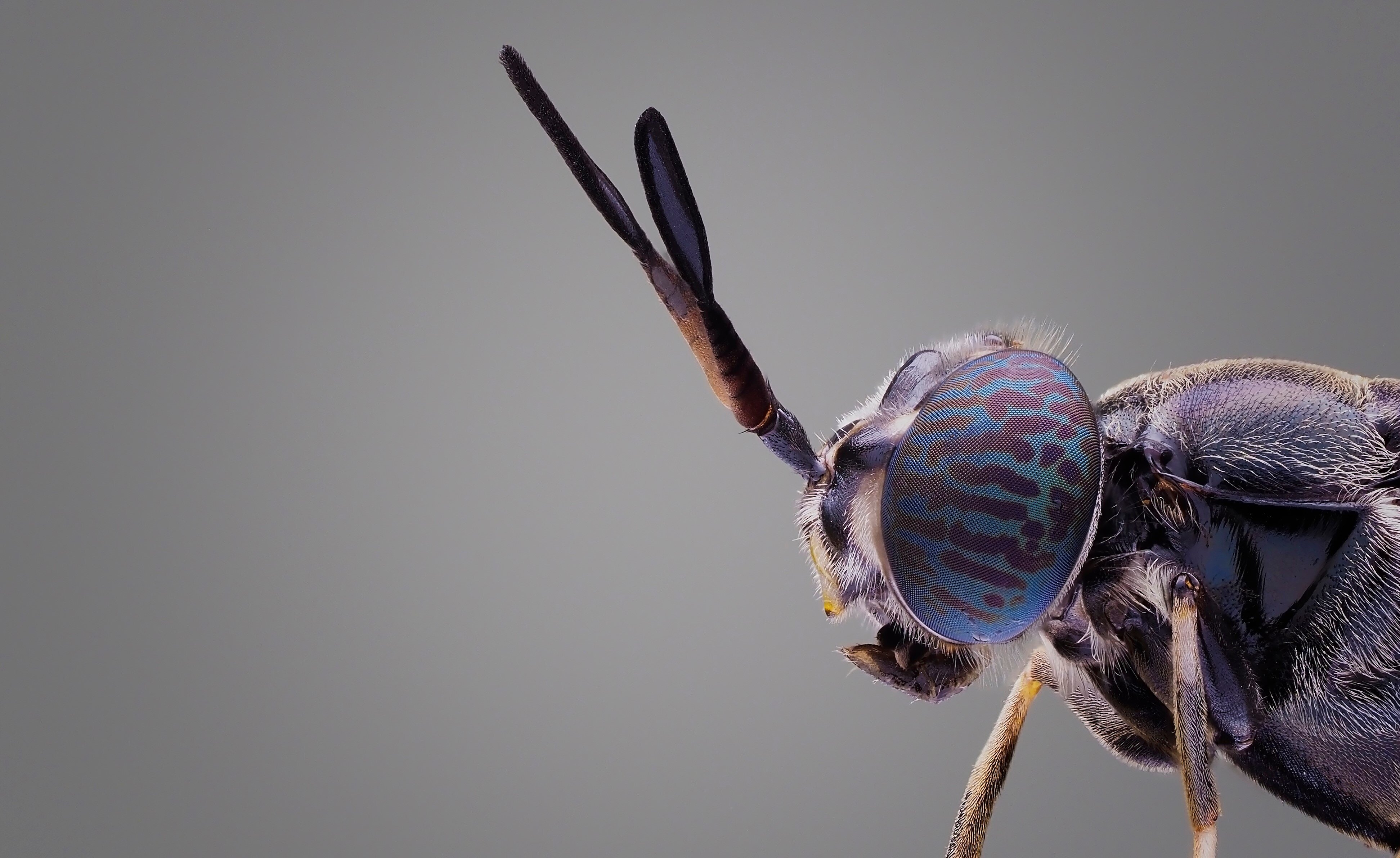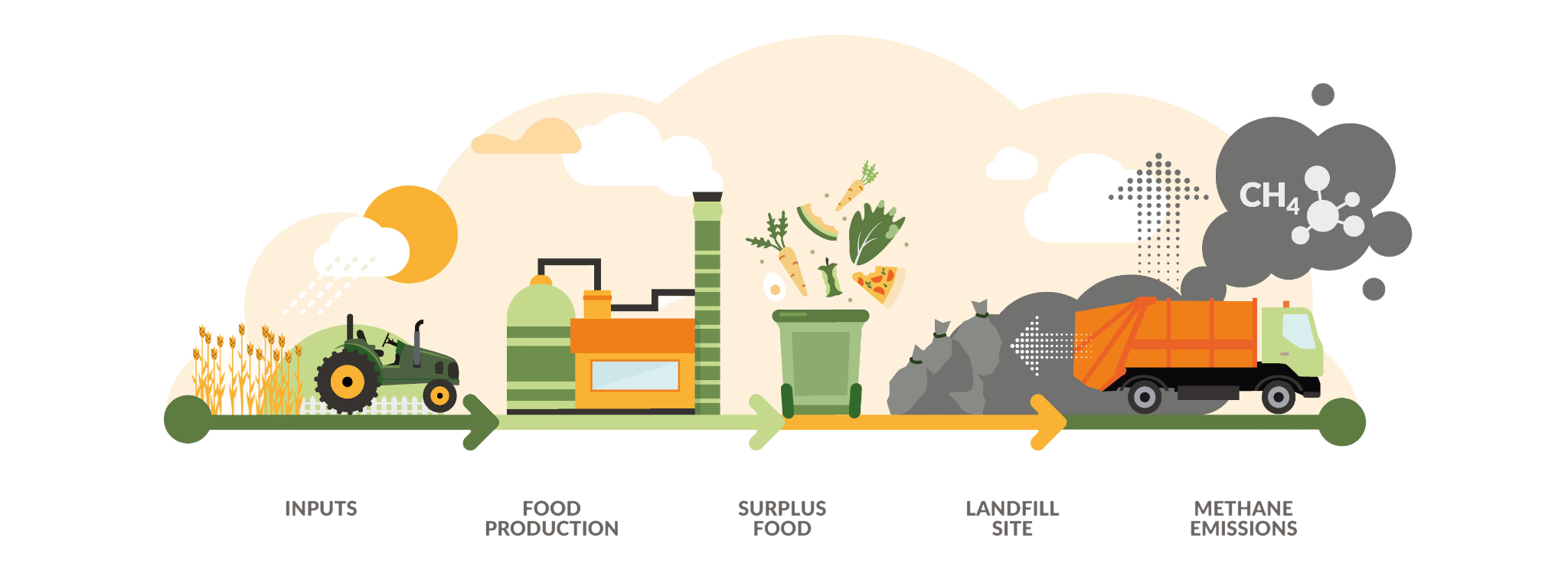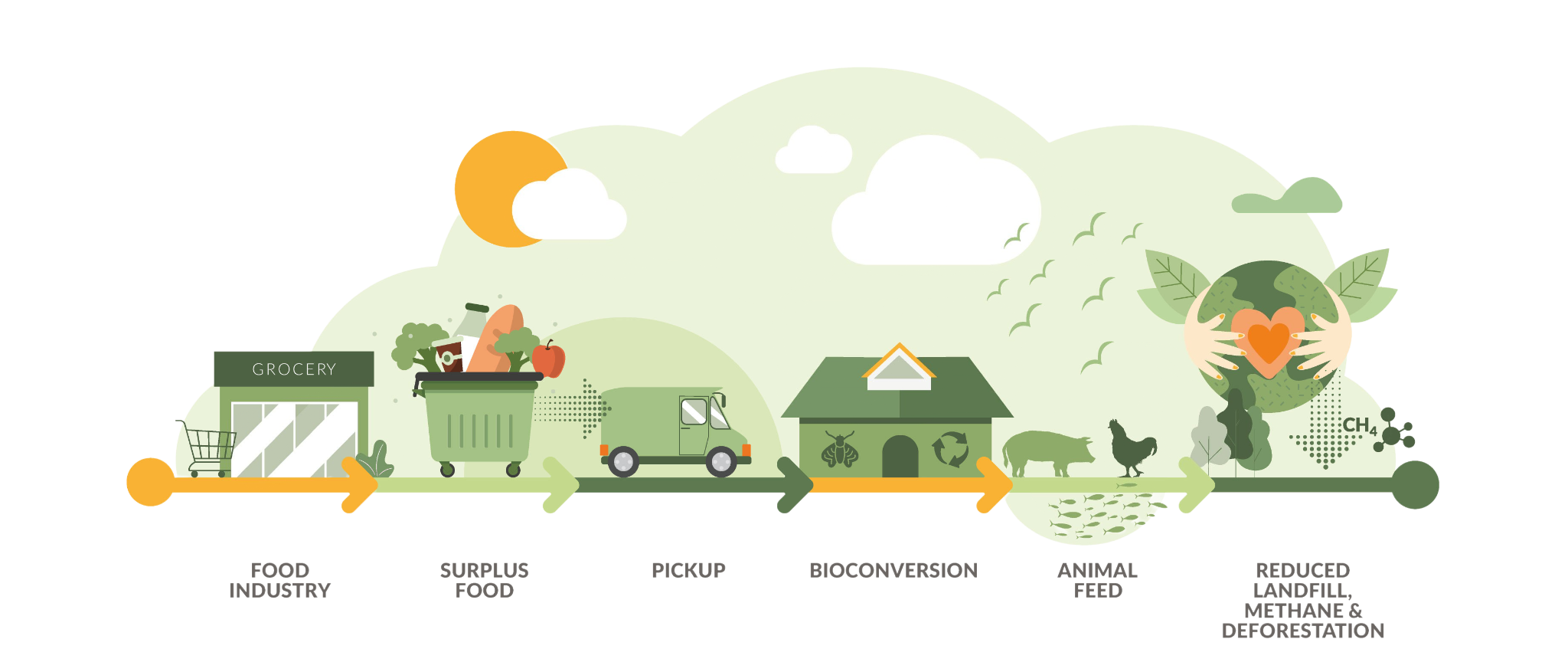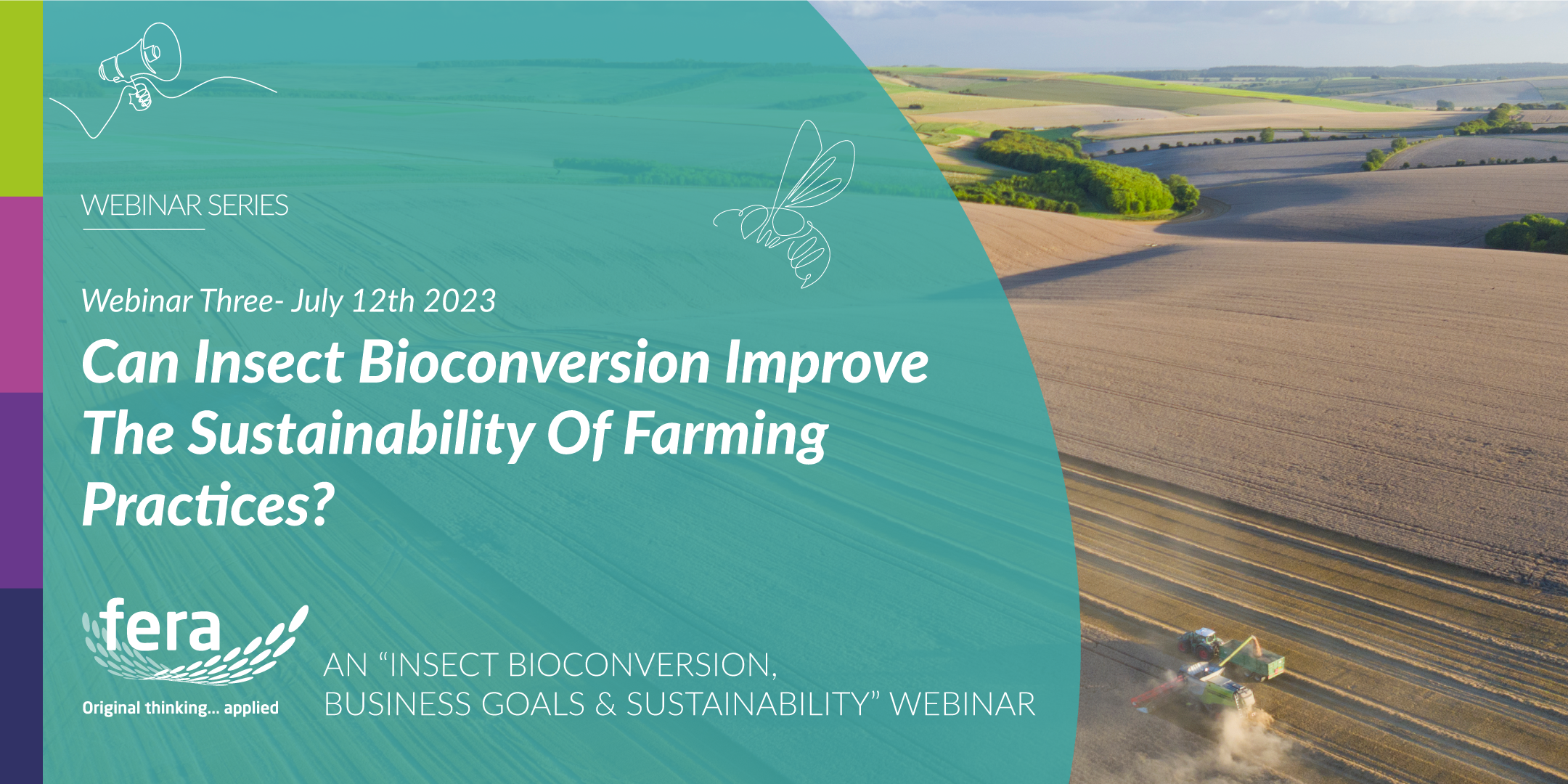
Visit our other sites
-
Fapas - Proficiency Testing
Globally recognised provider of proficiency tests, running over 400 tests annually across an extensive range of matrices and analytes
-
Great Crested Newts Testing
A single sample taken by an ecologist at any time during the newt breeding season can determine their presence or absence, saving you time and money



Solving Global Food Challenges
The Food and Agriculture Organisation (FAO) of the United Nations estimates that one-third of all global food produced is lost or wasted between farm and fork. In the UK, that translates to 3.6 million tonnes of food being wasted by the food industry every year. Food loss and waste is also a significant contributor to habitat and biodiversity loss. The current demand for meat and fish products is expected to see a 78% increase by 2050 and without positive action will further impact already depleted land and oceans.
Feeding the World
Globally, the rising pressure to meet the expected consumption levels for the ever-growing population estimates that more than 250 million metric tonnes of additional protein will be needed per year. This puts immense pressure on our current animal feed protein sources such as soy and fishmeal. The current land degradation, declining soil fertility, unsustainable water use, overfishing and marine environment degradation are all lessening the ability of the natural resource base to supply food without making considerable detrimental impacts on the environment.
Reducing Food in Landfills
The environmental impact of food waste is already significant, responsible for 8% of global GHG emissions. When food is discarded, it’s not just the food, often still edible, that is wasted, but also the valuable resources that went into making it. Furthermore, when food decomposes in landfills, it produces a greenhouse gas, methane. This puts huge pressure on the planet as food losses and waste alone contributes to an estimated 8-10% of global greenhouse gas emissions. Putting this into perspective, if food waste were a country, it would be the third largest greenhouse gas emitter, behind China and the United States. The pressure is on to reduce the environmental impact of food production. So how will we meet this demand sustainably? The answer could be insects. Alternative efficient technologies and practices are being sought to better deal with organic substrates (waste) whilst also providing a sustainable source of animal feed. Enter insect farming and a bioconversion methodology, as some insect species can reduce organic waste through consumption and convert the waste into high protein biomass for use in animal feed as well as other products. Insects offer a unique opportunity to address several challenges: protein supply, increased human demand, and organic waste disposal.


Solution: Food System Reformation
Consumers increasingly expect the food and drink industry to deliver sustainability measures in their operations, in the products that they sell, and in their supply chains. Awareness of the food system’s contribution to climate change, deforestation, water stress, food waste and other sustainability challenges is on the rise, especially as part of the UN’s Sustainable Development Goals. There are therefore significant commercial and reputational benefits in taking action.
Many global companies, including food retailers, producers, and distributors have already made significant moves towards their impact on the environment as part of UN SDG Goal 12: Responsible Consumption and Production and Goal 13: Climate Action. Schemes including ‘zero waste to landfill’ and reducing food losses and waste in the supply chain are making positive impacts in the industry, along with collaborating with suppliers, retailers, and local governments to advocate for system reform to address food waste and mitigate climate change.
See how Insect Bioconversion can assist you in achieving the UN's SDGs:
Explore our Insect Bioconversion Services


Reduce:
Reducing food waste by half would avoid 1.5 gigatons of carbon dioxide equivalent emissions per year by 2050, but with the growing population and expected increase in food demand to be 60-70% by 2050, how can the food industry ensure they continue to meet demand, whilst also adhering to the global sustainability drive?
Explore Fera's REDUCE service:
For businesses looking understand if insect bioconversion could be used to capture the value of their waste whilst reducing its impact on the environment.


Repurpose:
Turn organic side streams into high-value feed ingredients. Repurposing surplus food and converting it into animal feed avoids greenhouse gases generated from landfill and potentially reduces deforestation. As insects can eat a wide range of organic materials, they are perfect for dealing with production line side streams, discarded foods or agricultural wastes.
Explore Fera's REPURPOSE service:
For businesses who have already shown that their waste streams are suitable for insect bioconversion.


Redistribute:
Redistributing surplus food waste into animal feed and other high value products via insect bioconversion contributes to the circular economy and allows food waste to re-enter the food cycle without the emissions of greenhouse gases.
Explore Fera's REDISTRIBUTE service:
For businesses who are ready to develop and build their own bioreactors.
Insects Reforming the Food System
View the Insect Biconversion process from start to finish:
As a largely untapped and under-exploited method, insect bioconversion (the method of converting food waste into animal feed via insects) offers a unique opportunity to address perceived challenges and mitigate the environmental impact in obtaining protein sources. When dried, insects contain up to 50% of high-quality protein as well as necessary vitamins, fats, and amino acids.
Praised for their high-quality protein content, in a natural food chain, insects take care of recycling wasted nutrients, so they don’t mind food waste, surplus/rotting crops, discarded grains, or even manure. In this way insects contribute to the circular economy. Today, this sustainable solution can be realised on a large scale. Repurposing surplus food is therefore a solution to the growing levels of bio waste as well as a solution for sustainable proteins.
They are also rich in antimicrobial, medium-chain fatty acids, depending on species, which have proven gut health benefits. Insect meal could help reduce the UK’s future soy imports, a product that is expected to see a 78% increase by 2050, by 1/5 if scaled up, reducing pressure on critical production landscapes as the sourcing and production of soy has increasingly been linked to deforestation in places such as South America.
Find out how insect bioconversion can provide a highly sustainable and effective method of dealing with production line waste side streams, foods or agricultural wastes to help meet your sustainability goals.
How Does it Work?
Insects - Black soldier flies (BSF), Hermetia illucens, can valorise a wide variety of organic side streams and residues into high-quality and sustainable ingredients for application in animal feed products. Our team of experts can help you realise the potential of your waste, conduct lab trials, pilot, and scale your product, and help reduce risk.
Our solutions cover feedstock preparation using all kinds of organic residues, rearing of the larvae, their processing into protein meal and lipids, the quality and safety of insect-derived products, as well as the use of the rearing residue and insect frass as a fertiliser.
Fera can provide a range of solutions to address corporate sustainability goals including reducing food waste, reducing GHG emissions and mitigating climate change by redistributing food industry side streams, which would otherwise go to waste, through the transformation of organic residues into quality ingredients for animal feed, industrial oils, plastic materials, and fertiliser. We cover the entire supply chain from feedstock handling to rearing, separation and extraction.


Fera's Expertise
Fera's "Insect Biconversion, Business Goals & Sustainability" Webinar Series
Watch Fera's insect bioconversion webinar series where Dr Maureen Wakefield was joined by experts and guests in industry to discuss the latest science, insights & applications of insect bioconversion across different sectors.
You can register your interest for further webinars here.
Fera's Insect Research Facilities
Fera opened its specialist insect laboratory at our York Biotech Campus location in August 2022. The £1m expansion involved converting a former storage unit on site into a purpose-built insect research unit, increasing Fera’s presence at YBC by over 2,000 sq. ft.
This expert research and development (R&D) facility will support the rapid growth of insect bioconversion to upcycle biomass residues into valorised products. Fera’s R&D services will help a variety of industries to evaluate the feasibility and scale up processes by which they can best adopt the technology.
Fera has led insect bioconversion R&D in the UK and EU for the past 10 years. The laboratory, which is the first of its kind in the UK and one of the first in Europe, enables Fera to help meet the needs of global clients from across the food industry by expanding the scope and scale of its current insect services to ‘twin’ the process of insect bioconversion at factory production scale.
Our state of the art Insect Research Laboratory:
Find out how Fera can help reduce your waste side streams to improve your environmental footprint and supply chain sustainability with insect bioconversion solutions.

Copyright © 2025 Fera Science Limited (“Fera”). All rights reserved.
For further information about how Fera uses any personal data collected from you, please see our Privacy Notice at www.fera.co.uk/privacy-policy.










